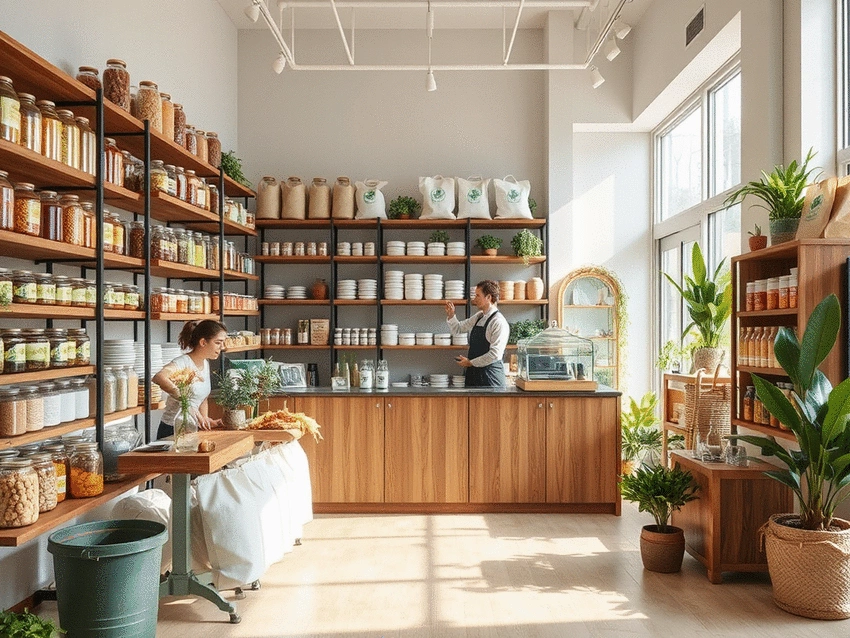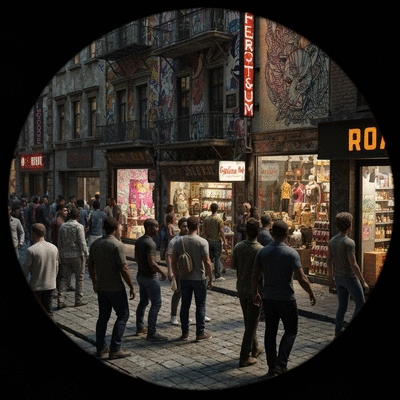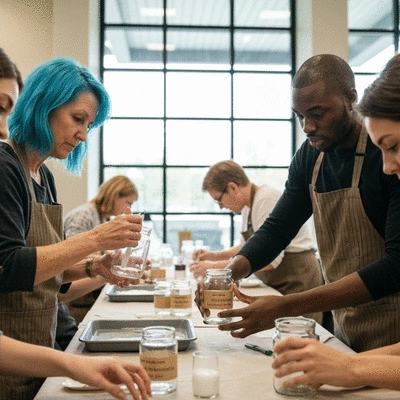Budgeting for Life in Vancouver
By Emilia Cartwright / Dec 05
Have you ever thought about the tangible impact your shopping habits can have on the environment? In a city like Vancouver, where sustainability is at the forefront of community values, understanding and practicing zero-waste shopping can transform the way we interact with our planet and each other.
This diagram illustrates the interconnected processes and positive impacts of engaging with zero-waste shopping and sustainable living practices in Vancouver. For more insights into local sustainability efforts, check out Marpole's Sustainable Street Upgrades.
Buying in bulk, using own containers, minimal packaging. Reduces reliance on single-use plastics.
Less plastic in landfills & oceans. Healthier ecosystems, decreased environmental strain.
Supports local businesses, farmers' markets. Fosters community engagement & sustainability workshops.
Repair, reuse, recycle. Minimizes resource depletion, promotes a plastic-free future.
Welcome to the world of zero-waste shopping! In a city like Vancouver, where nature is as much a part of our daily lives as our morning coffee, understanding zero-waste shopping is crucial. This shopping method focuses on minimizing waste by using reusable containers and opting for products that come without packaging. It’s about making mindful choices that not only benefit our wallets but also our environment!
This sustainable approach matters because it helps reduce the volume of waste that ends up in landfills and oceans. Every little change counts, especially in a bustling metropolis like ours, where the impact of our consumption habits is magnified. By embracing zero-waste shopping, we contribute to a healthier planet and promote a culture of sustainability.
Zero-waste shopping is more than just a trend; it’s a lifestyle that aims to eliminate waste in every aspect of our lives. At its core, it encourages us to rethink how we purchase and consume products. By focusing on buying in bulk, using our own containers, and choosing products with minimal or no packaging, we can significantly reduce our environmental footprint. This approach aligns perfectly with Vancouver's broader commitment to sustainability, as seen in initiatives like Sustainable Transportation Innovations Unveiled.
These practices matter because they lead to a healthier ecosystem and foster community collaboration. In Vancouver, we are all about supporting one another, and choosing zero-waste options is a beautiful way to contribute to that spirit!
Plastic waste is one of the biggest challenges we face today. Did you know that millions of tons of plastic enter our oceans each year? This pollution not only harms marine life but also threatens our health and the environment. It’s a problem that affects us all, especially in a city that prides itself on its natural beauty.
By shifting towards zero-waste shopping, we can combat this issue head-on! Every time we choose to walk into a zero-waste shop instead of a traditional grocery store, we are taking a stand against plastic waste.
Sustainable living in Vancouver is about finding balance. It’s about making choices that are good for both the environment and our communities. At A Piece of Van City, I love sharing insights that empower our readers to embrace this lifestyle without feeling overwhelmed.
By adopting these practices, we can create a more sustainable future for all Vancouverites. Let’s work together to cultivate a city where living well doesn’t come at the expense of our beautiful environment!
When shopping zero-waste, consider bringing a small set of reusable produce bags with you! Not only do they help you avoid plastic bags, but they also make it easier to keep your bulk items organized. Plus, many zero-waste shops appreciate customers who come prepared, fostering a greater sense of community around sustainable practices.
If you’re wondering how to integrate more sustainable practices into your daily life, exploring zero-waste shopping options in Vancouver is a fantastic start! These shops not only provide eco-friendly alternatives but also foster a vibrant community dedicated to reducing waste. Let’s dive into some key takeaways from these zero-waste havens.
By embracing these practices, you can make a meaningful impact on the environment while enjoying the unique offerings of Vancouver’s local shops. It’s about making small, conscious choices that collectively lead to significant change!
When we choose to support sustainable practices, we're not just shopping differently; we're also contributing to a healthier planet. By reducing our reliance on plastic, we help decrease pollution and the strain on our landfills. This ripple effect extends beyond individuals to influence local economies and promote a culture of sustainability.
Moreover, adopting these practices can lead to:
Choosing sustainable options is a powerful statement of values, encouraging others to follow suit as well!
The concept of a circular economy is crucial for reducing waste in Vancouver and beyond. This approach emphasizes reusing, repairing, and recycling materials rather than discarding them. By participating in this cycle, we can significantly minimize resource depletion and environmental impact. For more information on local initiatives that contribute to a circular economy, you might find our article on TIN7 CHT TI TEMXW Wins insightful.
In practical terms, this means:
As we adopt a circular economy mindset, we not only support a more sustainable future but also become part of a larger community striving for a plastic-free world!
As we move towards a more sustainable lifestyle, I encourage you to join the movement towards reducing plastic use. Every small action counts, and together, we can create a significant impact! So, how can you get involved?
Take the leap towards a plastic-free future by making informed choices. Start by:
By making these small changes, you contribute to a larger goal of sustainability, inspiring others to make similar choices!
Don't keep your zero-waste journey to yourself! Share your experiences on social media or within your community. Sharing your challenges and successes can motivate others to embark on their own sustainable paths. Plus, you might discover new tips and tricks from others along the way!
Lastly, consider participating in local zero-waste events and workshops. These gatherings are perfect for learning more about sustainable practices while connecting with like-minded individuals. Here are a few potential activities to look for:
Engaging in these activities not only enhances your knowledge but also strengthens the community and fosters a collective commitment to a more sustainable future!
Zero-waste shopping is a method of purchasing goods that focuses on minimizing waste by using reusable containers and opting for products with minimal or no packaging. The goal is to reduce your environmental footprint by avoiding single-use plastics and excessive waste.
In Vancouver, a city known for its commitment to nature and sustainability, zero-waste shopping is crucial for reducing landfill waste, combating plastic pollution in oceans, supporting local economies, and promoting a healthier ecosystem. It aligns with the city's values and helps maintain its natural beauty.
You can start by investing in reusable bags, bottles, and containers. Look for bulk stores or shops that allow you to fill your own containers. Choose products with minimal or eco-friendly packaging, and support local businesses that prioritize sustainability. Participating in local zero-waste workshops can also provide practical tips.
The circular economy is an economic model that emphasizes reusing, repairing, and recycling materials for as long as possible, rather than discarding them. In zero-waste shopping, this means choosing durable items, repairing instead of replacing, and supporting businesses with sustainable production processes. It aims to minimize resource depletion and environmental impact.
Vancouver has several dedicated zero-waste shops and bulk sections in various grocery stores. These establishments often provide unpackaged goods, refill stations for liquids, and sustainable alternatives for everyday products. Engaging with local sustainability groups can also help you discover new resources and community initiatives.
Here is a quick recap of the important points discussed in the article:



 Budgeting for Life in Vancouver
Did you know that creating a monthly budget can be your best ally in navigating the high cost of liv
Budgeting for Life in Vancouver
Did you know that creating a monthly budget can be your best ally in navigating the high cost of liv
 Banking Basics for Vancouver Newcomers
As you embark on your journey in Canada, understanding the local banking system is crucial for your
Banking Basics for Vancouver Newcomers
As you embark on your journey in Canada, understanding the local banking system is crucial for your
 Eco-Friendly Housing in Vancouver
Have you ever considered how your home can impact the environment? Eco-friendly housing options are
Eco-Friendly Housing in Vancouver
Have you ever considered how your home can impact the environment? Eco-friendly housing options are